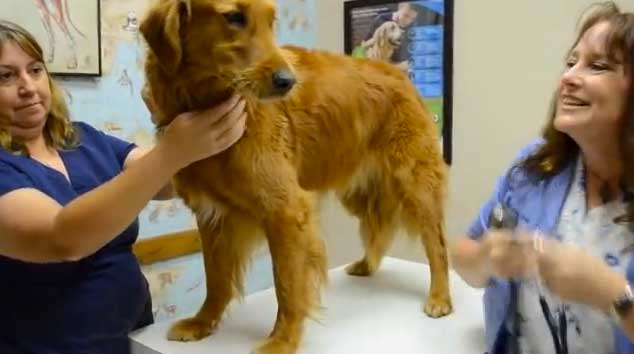Cancer is the number one killer of Dogs and Cats. Everyone should know these warning signs.
Cancer has touched the lives of innumerable people. Almost everyone I know has had some sort of personal experience with a loved one. As the following of I Heart Pets is fully aware, loved ones aren’t always on two legs; loved ones also include our furry, finned, and feathered friends. Unfortunately, they can get cancer too.
The key to successful treatment is the earliest possible detection. Early detection is dependent on early recognition of the telltale symptoms. Everyone should be aware of these. Remember, some of these signs can be associated with other illnesses or conditions, and the only way to receive a proper diagnosis if from your trusted veterinary professional. Read on:
- Growths, Tumors, Lumps: Is it a mole? Is it a scab? Is it benign or malignant? There is no way to know for sure without consulting a veterinarian. Don’t wait on this one. Typically an analysis, including a biopsy, is required to know with certainty.
- Abnormal Odors: If you smell something unusual, something different, or something you’ve simply not smelled in the past emanating from the mouth, ears, nose, anal region, or urine, this can be a sign of a change in the pet’s body chemistry. In some cases, this can point to cancer.
- Abnormal Secretions or Discharges: Again, this change in body chemistry can point to an underlying, less observable condition. Vomiting, diarrhea, or eye discharge that last longer than in the past should be evaluated.
- Lack of Appetite: Lack of appetite should be taken very seriously. Cats and dogs do not simply decide to stop eating, or go on a diet like humans. If your pet has lost its urge to eat, this should warrant a visit to the vet.
- Frequent Urination: Urinating frequently should warrant a urinalysis. Your veterinarian may detect blood in the urine. In this case, they may first try a round of antibiotics in the case that it could be a urinary tract infection.
- Weight Loss: With or without a change in appetite, a decrease in weight should be assessed.
- Extreme Lethargy: If your furred friend is laying around in contrast to the personality you are accustomed to, this could also be a sign of a deeper issue.
- Respiratory Distress: Coughing and wheezing must be assessed by a professional.
- Frequent Urination: Urinating frequently should warrant a urinalysis. Your veterinarian may detect blood in the urine. In this case, they may first try a round of antibiotics in the case that it could be a urinary tract infection.
- Pain: Pain can be a sign of many issues. Cancer is a possibility. In any case, as with the other signs, have your pooch or kitty evaluated.
BONUS: Did you know dogs have been known to detect cancer in humans? Check this out!
H/T: PetMD, ClawsandPawsVet

